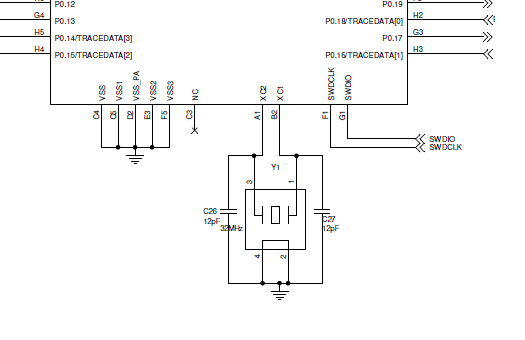Hi All,
can any one tested BLE on nRF52832-CIAA?
Actually we have a nRF52-DK and also our application board.
in both the boards we loaded DFU project to check BLE connectivity. in nRF52-DK, BLE function works great. but in our application board (nRF52832-CIAA) we cannot see the BLE advertising (32MHZ crystal is also not resonating)
please let us know what is the issue?? early response will be appriciated..
below attached the schematics.



